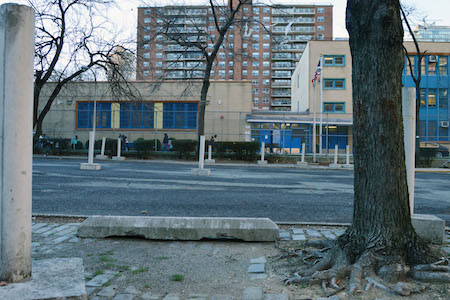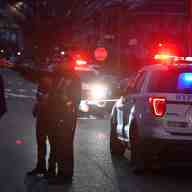
BY JACKSON CHEN | Seven parents on the Upper West Side filed a lawsuit on January 15 arguing that a nursing home development must completely redo its environmental review because the New York State Department of Health failed to follow proper procedures.
The lawsuit comes on the heels of a December 9 decision by State Supreme Court Judge Joan B. Lobis. According to the judge’s decision, DOH and Jewish Home Lifecare (JHL) didn’t take the “requisite hard look” at the impact of noise and hazardous materials in their environmental review of the construction of a 20-story nursing home on West 97th Street.
With the choice of appealing the judge’s decision or completing an amended environmental impact statement, JHL decided to appeal Lobis’ decision on December 30, according to court documents.
Two weeks into JHL’s notice of appeal, parents of P.S. 163 students fired back with a request for a cross-appeal and another motion that seeks a complete redo of the environmental impact review.
The parents’ motion to reargue claims that the DOH violated State Environmental Quality Review Act procedures. Lobis had ruled that while the DOH followed proper procedures, an amended environmental impact statement was required.
According to the lawsuit, the state DOH failed to respond, comment, or analyze a proposal for central air conditioning at P.S. 163 as a key mitigation measure during its environmental review of the nursing home development.
“DOH could have addressed and was required to analyze the issue,” the suit stated, “but intentionally ignored P.S. 163’s public comments relating to central air conditioning.”
To combat the noise created from construction, the parents argued that noise-attenuating windows should be installed and would have to remain shut throughout the construction process. The city’s construction code requires 15 cubic feet per minute of fresh air for classrooms and, as a remedy, Robert Lee, an acoustical engineering expert hired by the plaintiffs, submitted public comments that central air conditioning was the only way to provide the legally required and necessary fresh air for the school children with the windows being closed for at least three academic school years because of the construction.
According to the parents’ suit, the central air conditioning proposal was only addressed after the final environmental impact statement was issued and the public review process was closed.
“The problem is they failed to mention it at all in the final environmental impact statement,” said Rene Kathawala, the Orrick, Herrington & Sutcliffe attorney representing the suing parents. “You can read all 500 pages of the [final environmental impact statement], they never even mentioned central air conditioning or analyzed it.”
The suit stated JHL’s counsel “slipped into the record the emails” between them and the New York City School Construction Authority relating to the costs of central air conditioning after the public record was closed. As reflected in the DOH’s final approval, or Findings Statement, the department said central air conditioning was not a feasible measure because it was too costly and time-consuming to install.
As an alternative option, JHL agreed to provide air conditioning units for some classrooms, according to court documents. However, the parents felt the central air conditioning throughout the entire school was the only reasonable solution to provide the children with fresh air.
Despite Judge Lobis siding with critics of the nursing home development in requiring a harder look at its environmental impacts, the parents’ new legal action takes the issue further, asserting that the judge overlooked what the parents consider a serious violation by the DOH.
With the DOH allegedly ignoring the request to look into central air conditioning, the parents felt that the DOH committed a procedural violation of the State Environmental Quality Review Act — an offense that would require the entire environmental review process to be redone.
According to JHL’s pre-argument papers filed with its appeal, Lobis made a mistake in considering evidence from the parents that wasn’t included in the administrative record.
“Jewish Home remains deeply committed to moving forward with this innovative and pioneering model of elder care,” a JHL spokesperson said this week. “Our intention is to commence construction as soon as the litigation is concluded.”
The state Department of Health did not respond to a request for comment.
“This case was always about noise and hazardous materials,” Kathawala said. “[The DOH’s] procedural violation will be undisputed and we believe it will resonate with the Appellate Division.”



































